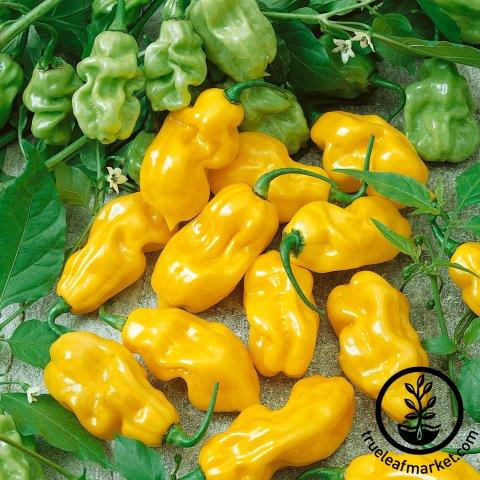
Ashleigh Smith

Peppers are one of the most popular summer vegetables to grow. They love the warm summer months and make the perfect summer snack, fresh salsa ingredient, pizza topping, or splash of color in your fajitas. Peppers are definitely one of my must have garden vegetables. Not only are they colorful, but they come in a variety of flavors and heat levels. Below you can find recommendations from each level of spiciness to suite your fancy. Hotter peppers will have more capcaisin, the natural spice compound, in them. The scoville scale heat units can be used as a guide to just how spicy the peppers in each category will be.
What is the Scoville Scale?
The scoville scale is named after its creator Pharmacist Wilbur Scoville who started measuring the spice level of hot chilis using a organoleptic (taste test) in 1912. This test was most popularly used until it was replaced by the High-Performance Liquid Chromatography (HPLC) test in 2011. This test measures the capsaicinoid content in an analytic quantification rather than a subjective human assessment.
Types of Peppers
Ornamental
Ornamental Peppers are grown for their appearance, rather than taste. While they are primarily used for their looks, they may still be used in culinary applications. As for their spice levels, it depends on the individual varieties which appear across the scoville scale.

Sweet (0-100 SHU)
Include peppers without heat, such as the bell, banana, mini sweet, and long sweet peppers. These are ideally used for snacking, salsa, cooking, roasting, and grilling. While they don’t have any heat, they do add a fresh flavor to your favorite dishes.
Hot (100+ SHU)
Hot peppers have a spicy sensation that accompanies their unique flavor profiles. The level of spice in pepper is dependent on the amount of capsaicin (a natural chemical compound triggering spiciness. The hotter the pepper, the greater the concentration. For reference, standard U.S. grade pepper spray registers at a Scoville heat unit up to 5,300,000, and Pure capsaicin measures up to 16,000,000 SHU. The hottest known pepper is the Carolina Reaper measuring up to 2,200,000 SHU. Whether you want the essence of spice or your tongue to feel like it is going to walk away on its own, there is a pepper for you.

Mild (100-2,500): Include Pepperoncini, Anaheim, and Poblano peppers.
Medium (2,500-30,000): Include Jalapenos, Hungarian, and Serrano types.
Hot (30,000-100,000): Include Cayenne, Tabasco, and Thai peppers.
Extra Hot (100,000-300,000): Include most Habaneros, Scotch bonnets, and Fatali’s.
Extremely Hot (300,000-1,000,000+): Includes Ghost Peppers, Red Savina, Chocolate Habanero, Trinidad Scorpion, and the Carolina Reaper. These will for sure knock your socks off and have you sweating.
About the Author

I'm Ashleigh Smith, a native to Northern Utah. I first gained a love of gardening with my grandmother as I helped her each summer. I decided to make a career of it and have recently graduated with a Bachelor's degree in Horticulture from Brigham Young University - Idaho. My studies have focused on plant production while I also have experience in Nursery & Garden Center Operations.
Our Recommended Picks
Leave a comment
Your email address will not be published. Required fields are marked *
1 comments
Anne Guarnieri
Hi, Looking for an Italian long pepper -can you direct me?
Further Reading

How to Choose the Right Tobacco Seed Variety for Your Garden
Selecting the right tobacco seed variety can make or break your growing season. For experienced gardeners, this choice isn’t just about aesthetics—it’s about matching your growing environment and goals with the perfect plant genetics. Whether you’re gr...

Ashleigh Smith
2025-10-294 min read0
Everything You Need to Know About Tobacco Seeds
Growing tobacco seeds is an art form for seasoned home gardeners. Whether you’re intrigued by the plant’s ornamental qualities, want to harvest for fresh processing, are curious about heirloom varieties, or simply love the challenge of nurturing delica...

Ashleigh Smith
2025-10-297 min read0
Mild Climate Winter Gardening Guide for Zones 9 & 10: What to Plant and When
Coming soon!

Ashleigh Smith
2025-10-171 min read0
Harvesting the Incredible Health Benefits of Microgreens
Written By Lara Wadsworth Microgreens are young edible seedlings that are harvested when they are just 1-3 inches tall. These quick-growing plants are emerging as an important food source with numerous health benefits. Their nutrient density can be up ...

Ashleigh Smith
2025-09-306 min read1































